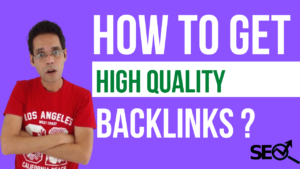
Off-site SEO is a crucial aspect of any successful online marketing strategy. It involves activities performed outside of your website to improve your search engine rankings. While on-page SEO focuses on optimizing your website’s content, off-site SEO focuses on building credibility and authority in the eyes of search engines. Affiliate marketing, when strategically implemented, can be a powerful tool to enhance your off-site SEO efforts.
Understanding the Synergy
Affiliate marketing involves promoting other businesses’ products or services in exchange for a commission on each sale. This symbiotic relationship can benefit both the affiliate and the merchant. For affiliates, it provides an opportunity to earn revenue while promoting relevant products to their audience. For merchants, it expands their reach and increases sales without incurring additional marketing costs.
Key Strategies to Boost Off-Site SEO with Affiliate Marketing
- High-Quality Content Creation:
- In-depth Reviews and Comparisons: Create comprehensive reviews and comparisons of products or services in your niche. This establishes you as an authority and provides valuable information to your audience.
- Informative Blog Posts: Publish informative blog posts that address common pain points or questions related to your niche. Include relevant affiliate links within the content to provide solutions to your readers.
- Video Tutorials and Demonstrations: Create engaging video content that showcases the benefits of specific products or services. This can be particularly effective for visual learners.
- Guest Blogging:
- Identify Relevant Websites: Reach out to websites in your niche that accept guest posts.
- Create High-Quality Content: Craft valuable and informative articles that resonate with the target audience of the host website.
- Include a Bio with an Affiliate Link: Include a brief author bio at the end of your guest post with a link to your website or a relevant affiliate offer.
- Social Media Engagement:
- Share Valuable Content: Share your blog posts, reviews, and other content on social media platforms.
- Engage with Your Audience: Respond to comments and questions, and participate in relevant discussions.
- Run Contests and Giveaways: Host contests and giveaways to incentivize engagement and attract new followers.
- Forum and Community Participation:
- Identify Relevant Forums and Communities: Join online forums and communities related to your niche.
- Provide Valuable Insights: Share your expertise and answer questions from other members.
- Include a Signature with an Affiliate Link: Add a signature to your forum posts that includes a link to your website or a relevant affiliate offer.
- Email Marketing:
- Build an Email List: Collect email addresses from visitors to your website and social media followers.
- Send Regular Newsletters: Send out regular newsletters with valuable content, including affiliate offers.
- Segment Your Audience: Segment your email list based on interests and demographics to send targeted offers.
- Influencer Marketing:
- Identify Influencers in Your Niche: Partner with influencers who have a large and engaged following in your niche.
- Provide Them with Samples or Commission: Offer them free products or a commission on sales generated through their promotions.
- Monitor Their Campaigns: Track the performance of their campaigns to ensure they are aligned with your goals.
- Paid Advertising:
- Run Targeted Ads: Use paid advertising platforms like Google Ads and social media ads to reach a wider audience.
- Retargeting Campaigns: Retarget visitors who have previously interacted with your website or affiliate offers.
- Track Your ROI: Monitor the return on investment of your paid advertising campaigns to ensure they are profitable.
Best Practices for Ethical Affiliate Marketing
- Disclose Your Affiliate Relationships: Be transparent with your audience about your affiliate relationships.
- Promote Products You Believe In: Only promote products or services that you genuinely believe in.
- Follow the Affiliate Program’s Terms and Conditions: Adhere to the terms and conditions of the affiliate programs you participate in.
- Avoid Spamming: Do not spam your audience with unsolicited messages or links.
- Provide Value to Your Audience: Focus on providing value to your audience, rather than just making a quick sale.
The Best Affiliate Marketing platform
Impact.com is a popular affiliate marketing platform that offers a number of perks for both merchants and affiliates. Here are a few of the key benefits:
- Extensive reporting and tracking: Impact.com provides merchants with detailed reporting and tracking tools so they can see exactly how their affiliate programs are performing. This data can be used to optimize campaigns and improve ROI.
- Long cookie duration: Impact.com offers a long cookie duration, which means that affiliates can earn commissions on sales even if a customer clicks on their affiliate link and then doesn’t make a purchase until days or even weeks later.
- Dedicated support: Impact.com offers dedicated support to both merchants and affiliates. This can be helpful for troubleshooting any issues that may arise.
- Wide range of tools and features: Impact.com offers a wide range of tools and features to help merchants and affiliates manage their affiliate programs more effectively. These tools include things like banner generators, link tracking, and commission payouts.
Conclusion
By implementing these strategies, you can leverage the power of affiliate marketing to boost your off-site SEO and achieve your online marketing goals. Remember to prioritize quality over quantity, build relationships with your audience, and always adhere to ethical practices. With consistent effort and a strategic approach, you can create a successful affiliate marketing campaign that drives traffic, generates leads, and increases your overall online visibility.
Related articles :
- Affiliate Marketing: A Guide to Making Money Online
- The Rise of the Personal Brand: Why You Need One in Today’s World





